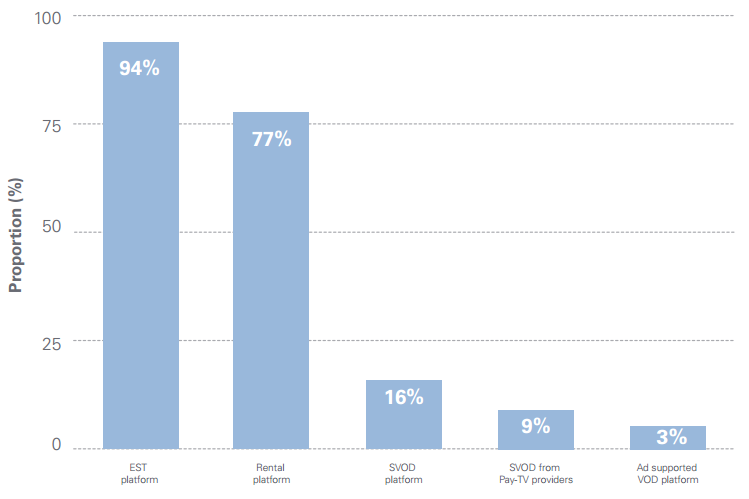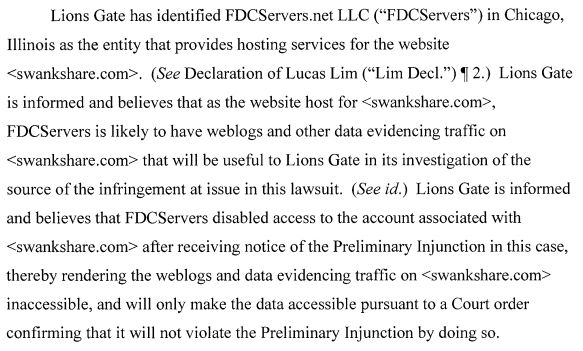Torrentfreak: “Labels Win Grooveshark Copyright Infringement Case” plus 1 more |
| Labels Win Grooveshark Copyright Infringement Case Posted: 30 Sep 2014 01:22 AM PDT Beleaguered music service Grooveshark is facing its biggest threat yet after a long-running case with the major labels of the RIAA came to a close last evening. In a ruling by United States District Judge Thomas P. Griesa in the United States District Court in Manhattan, Grooveshark parent company Escape Media and two of the company’s top executives were found liable for infringing the rights of the labels on a grand scale. The summary judgment is not a pretty read. It summarizes Grooveshark’s history and how the service began with licensed aims in mind, but achieved that by infringing the labels’ rights in the hope of reaching deals later on. The initial problem was obtaining content to offer to users. The company solved the issue by getting employees to “seed” music to other users via its own P2P sharing software known as Sharkbyte. A 2007 email from co-founder Josh Greenberg to employees reads:
In 2007, music obtained via Sharkbyte and other means was used to populate Grooveshark’s central music storage library. Internal company emails showed Greenberg, Tarantino and Escape’s senior programmer encouraging employees to bring in and download music so it could be uploaded to the company’s servers. By 2008 the Grooveshark service carried more than a million tracks, including thousands uploaded by Greenberg, Tarantino and other employees. That service grew by another million tracks and eventually into the streaming service available today. A year later the service was beginning to receive DMCA takedown notices but according to the decision handed down yesterday, the company had a solution to keep that content online. “Escape's senior officers searched for infringing songs that had [been] removed in response to DMCA takedown notices and re-uploaded infringing copies of those songs to Grooveshark to ensure that the music catalog remained complete,” the decision reads. Furthermore, records show that thousands of the DMCA notices sent by the labels were forwarded internally to employees, including Greenberg and Tarantino, for the music they had personally uploaded. The fact that employees were uploading content became known to the labels following discovery in another case currently before the courts. While the Court accepted that Escape and its employees uploaded thousands of tracks, the huge numbers claimed by the labels were rejected. In total the Court found that the defendants are liable for uploading ‘just’ 5,977 copyright works. And, of course, there is the not insignificant number of tracks the company streamed to its users over the course of its operations. Escape’s own records show that it “streamed or publicly performed”, copies of plaintiffs' copyrighted sound recordings at least 36 million times. “Each time Escape streamed one of plaintiffs' song recordings, it directly infringed upon plaintiffs' exclusive performance rights,” the decision reads. As a result of Greenberg and Tarantino instructing company employees to upload copyright-protected music to Grooveshark, the Court granted the labels’ motion for summary judgment on its claim for direct copyright infringement. On the secondary infringement front the Court ruled that Escape Media is liable for the direct infringements of the employees it instructed to upload music. “[The record labels] advance three theories of secondary liability: (1) vicarious copyright infringement, (2) inducement of copyright infringement, and (3) contributory copyright infringement. The court finds for plaintiffs on all three theories of liability,” the judgment reads. In respect of Escape’s co-founders, Tarantino and Greenberg, the Court found that they are not only “jointly and severally liable for Escape's direct and secondary copyright infringement” but also liable for direct infringement due to their own personal uploads of infringing content to Grooveshark. The judgment concludes with an instruction for the parties to submit proposals on the scope of a permanent injunction against Grooveshark within 21 days. Escape Media has already announced its intention to appeal. Source: TorrentFreak, for the latest info on copyright, file-sharing and anonymous VPN services. |
| Photographer Sues Imgur For Failing to Remove Copyrighted Photos Posted: 29 Sep 2014 08:33 AM PDT
Virtually every person on the Internet has shared a photo without obtaining permission from its maker, whether through social networks, blogs or other services. While this is usually not a problem with a picture of the average Internet meme, when it comes to professional photography there can be serious consequences. Earlier this year the Seattle-based artist Christopher Boffoli discovered that dozens of photos from his well-known “miniatures of food” series were being shared on Imgur. The photos were uploaded by a user named kdcoco who published them without permission. This type of infringement is fairly common and usually easy to stop through a DMCA notice. In this case, however, that didn’t produce any results, so the photographer saw no other option than to take Imgur to court. In a complaint (pdf) filed at a federal court in Seattle, Boffoli explains that he sent Imgur a DMCA takedown request on February 21. This seemed to work, as the image sharing site was quick to respond. "The images have been marked for removal and will be deleted from all of our servers within 24 hours," Imgur quickly replied.  But following this initial reply nothing happened. According to the complaint all of the images remained online for several months. “As late as September 2014 — more than 200 days after receiving Boffoli's notice — Imgur had not removed or disabled access to the Infringing Content. To date, the Infringing Content is still accessible on Imgur's servers,” the photographer’s lawyers write. Aside from the infringing behavior of the Imgur user, Boffoli holds the image sharing service responsible for continued copyright infringement. “Imgur had actual knowledge of the Infringing Content. Boffoli provided notice to Imgur in compliance with the DMCA, and Imgur failed to expeditiously disable access to or remove the Infringing Website,” The photographer is asking the court to order an injunction preventing Imgur from making his work available. In addition, the complaint asks for actual and statutory damages for willful copyright infringement. With at least 73 photos in the lawsuit, Imgur theoretically faces more than $10 million in damages. Thus far Imgur hasn’t responded to the complaint but at the time of writing the infringing photos are no longer available online. It’s not the first time Boffoli has sued an online service for failing to remove his photos. He also filed lawsuits against Twitter, Google and others. These cases were settled out for court under undisclosed terms. Time will tell whether Imgur will go for the same option, or if it will defend itself in court. Source: TorrentFreak, for the latest info on copyright, file-sharing and anonymous VPN services. |
| You are subscribed to email updates from TorrentFreak To stop receiving these emails, you may unsubscribe now. | Email delivery powered by Google |
| Google Inc., 20 West Kinzie, Chicago IL USA 60610 | |

 In January 2010, Universal Music Group filed a lawsuit in a New York court in which it alleged that Grooveshark was offering unauthorized copies of its musical works. The content in question were tracks from Universal’s pre-1972 back catalog.
In January 2010, Universal Music Group filed a lawsuit in a New York court in which it alleged that Grooveshark was offering unauthorized copies of its musical works. The content in question were tracks from Universal’s pre-1972 back catalog.





 The hacking trial of Gottfrid Svartholm and his alleged 21-year-old Danish accomplice continued this week in Copenhagen, Denmark. While Gottfrid is well known as a founder of The Pirate Bay, his co-defendant’s identity is still being kept out of the media.
The hacking trial of Gottfrid Svartholm and his alleged 21-year-old Danish accomplice continued this week in Copenhagen, Denmark. While Gottfrid is well known as a founder of The Pirate Bay, his co-defendant’s identity is still being kept out of the media.




